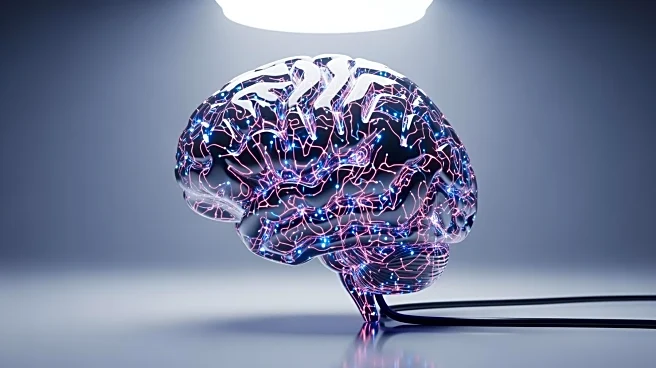What's Happening?
A recent study conducted by researchers at the Hebrew University of Jerusalem has uncovered new insights into how the brain processes sounds when an individual is focused. The study found that the brain has the ability
to predict and time sounds during periods of concentration, which helps individuals tune out background noise and maintain attention. This discovery could have significant implications for the development of improved hearing aids and attention training programs. The research highlights the brain's capacity to enhance auditory processing when a person is actively focusing, suggesting a smarter way of listening that could be harnessed in various applications.
Why It's Important?
The findings from this study are particularly important for the development of technologies and therapies aimed at improving auditory attention. For individuals with hearing impairments, the ability to focus and filter out background noise is crucial. Enhanced hearing aids that incorporate these findings could significantly improve the quality of life for these individuals. Additionally, the study's insights could be applied to attention training programs, benefiting those with attention deficit disorders or other cognitive challenges. By understanding the brain's natural mechanisms for focusing on sounds, new strategies can be developed to assist a wide range of people in maintaining attention in noisy environments.
What's Next?
Future research may explore how these findings can be integrated into practical applications, such as the design of next-generation hearing aids and cognitive training programs. Researchers might also investigate whether similar mechanisms are at play in other sensory modalities, potentially leading to broader applications in sensory processing and cognitive enhancement. Collaboration with technology developers could accelerate the translation of these findings into consumer products, offering new solutions for individuals with auditory and attention-related challenges.
Beyond the Headlines
This study also opens up discussions on the ethical implications of enhancing human cognitive abilities through technology. As we gain more understanding of the brain's natural processes, there is potential for developing interventions that could alter or enhance these processes. This raises questions about the limits of such enhancements and the potential societal impacts, including issues of accessibility and equity in the availability of advanced cognitive technologies.










